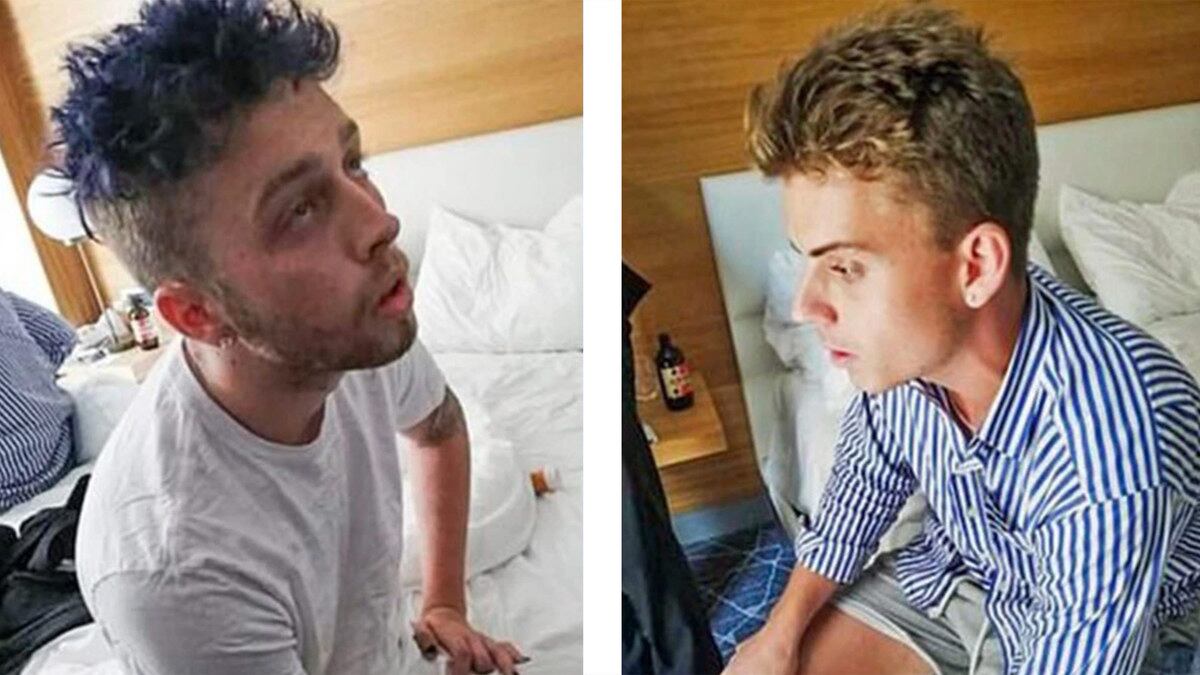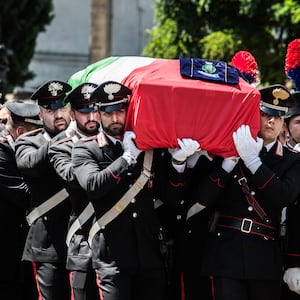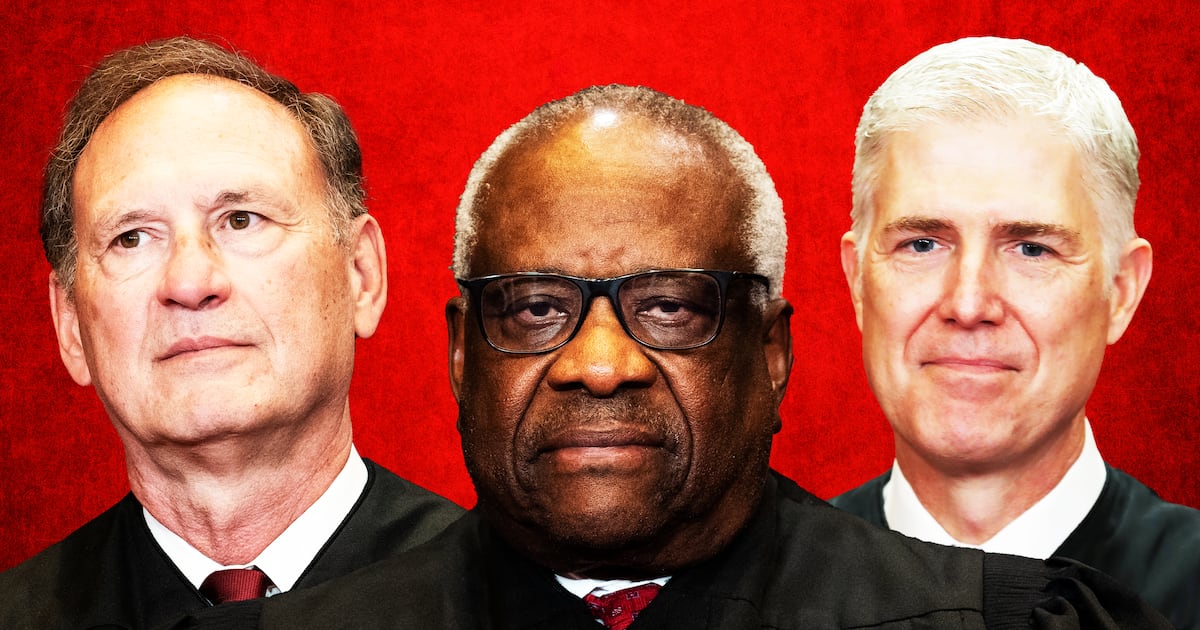ROME—It has been nearly one year since 35-year-old Italian Carabinieri police officer Mario Cerciello Rega was fatally stabbed 11 times on a dark street corner in central Rome, allegedly at the hands of Bay Area teens Finnegan Elder, then 19, and Gabe Hjorth Natale, then 18.
But what might have seemed a slam-dunk case against the Americans based on evidence presented in the pre-pandemic hearings has now taken a twist after it was discovered that prosecutors held back crucial evidence about the events leading up to the fateful night last July.
The Americans were in Rome for a party weekend and had bought what they thought was cocaine from Italo Pompei, a pusher they met through a go-between named Sergio Brugiatelli. When the Americans took the coke back to their hotel, they realized they had been duped and had paid about $80 for crushed aspirin. They wanted a refund, and then some.
ADVERTISEMENT
As the story goes, the boys went back to Brugiatelli and complained and eventually stole his backpack, which had his phone inside. When Brugiatelli called his phone, he made a date with the Americans to give them their $80 back and some real cocaine this time. But Brugiatelli never met the boys and instead Rega and his police partner Andrea Varriale showed up in plain clothes.
That’s when a fight broke out and Rega died after Elder pulled out his 8-inch military grade knife. The Americans insist they had no idea Rega and Varriale—both much larger men—were police officers and thought they were getting jumped by someone the pusher sent. Varriale says he and Rega did identify themselves, though they did not have their badges or service weapons on them, nor had they told their central command they were meeting the young men.
According to new evidence coming to light now that the trial is back in session after the COVID-19 lockdown, Pompei the pusher was a paid police informant and he and Brugiatelli were apparently in on a sting operation they were conducting with Rega and Varriale the night the Americans stumbled on to them.
Brugiatelli’s backpack was clearly a key element of the operation and whatever was in it could have tied Pompei to the police, thereby putting him at risk among other pushers and hustlers. That is likely why the cops thought they could easily get it back from the American kids and get back to what they were doing. They clearly didn’t count on Elder’s knife or the fact that the Americans weren’t going to be so easily scared away.
Elder’s Italian lawyer Renato Borzone says that holding back the key information that Pompei was on the police payroll changes everything about the trial. “It wasn’t a mistake and they forgot to mention that a key witness is on their payroll,” he told The Daily Beast. “This clearly implies they are trying to hide something and if they are hiding what happened leading up to the event, what else are they hiding?”
Just why Pompei was allowed to get sidetracked from his sting op with the cops to make a quick $80 from Elder and Natale will come up in court in the coming weeks, according to Elder’s lawyer. It is especially important if it leads them down the trail to the possibility that the police were getting a cut of whatever Pompei sold on the side until the real target arrived. Illegal drug selling, after all, is not the sort of commercial endeavor where you have to serve every customer who approaches. Pompei could have very easily not sold his fake coke to the Americans and kept to the task at hand.
Leah and Ethan Elder, who have been locked out of Italy because of the COVID-19 pandemic and unable to visit their son say the new evidence troubles them. “Despite the importance of the case, many of the prosecution’s key witnesses have responded ‘I don’t know,’ ‘I don’t remember,’ or ‘I forgot,’ while testifying about the events surrounding Officer Cerciello Rega’s death,” Leah and Ethan Elder told The Daily Beast. “It has become clear that some are hiding things they don’t want exposed. The revelation that the pusher was also a police informant only adds to the suspicious nature of this case.”
The Elders hope the new revelations will help shed light on the whole picture. “Our goal is to bring all the truth to light which is why we have pushed to have representatives from the U.S. Embassy and members of the press back into the courtroom,” Elder’s parents say. “We want justice for all. We are trying to save our son’s life.”
Pompei, who testified behind closed doors in court last week, denied being an informant. “I don’t know Rega, nor Varriale,” he told the court according to lawyers who were there. “And I’m not a pusher.”
Bugiatelli took the stand last week and testified that he cried when he learned Rega had died retrieving his bag. “It should have been me,” he said. “Not him.” He also denied being a drug dealer, go-between or informant.
It is also unclear just why the prosecutor in the case sought to keep the pusher’s status secret for nearly a year in a homicide case based as much on what happened before the killing as during the killing itself. Only after the Elder defense team pushed to see phone records that more than 2,000 calls between Pompei and the officers, including several the night Rega was killed, did a supervising police officer confirm in an affidavit that Pompei was on the payroll.
The trial continues in July with more disparity over facts. This time the confusion is over the translation of a tapped conversation in English between Elder, his American lawyer and his father in a Roman prison waiting room. It was originally translated that Elder said he “did know” Rega and Varriale were police officers when the fight broke out. Elder’s lawyer says that Elder really said he “did not know” they were cops, which changes the context of the charges entirely.
An expert has been called in to listen to the transcript independently. If Elder and Natale are convicted of knowingly murdering a police officer, they face life sentences. If they can prove that Rega was killed in self-defense, it is an entirely different story.






